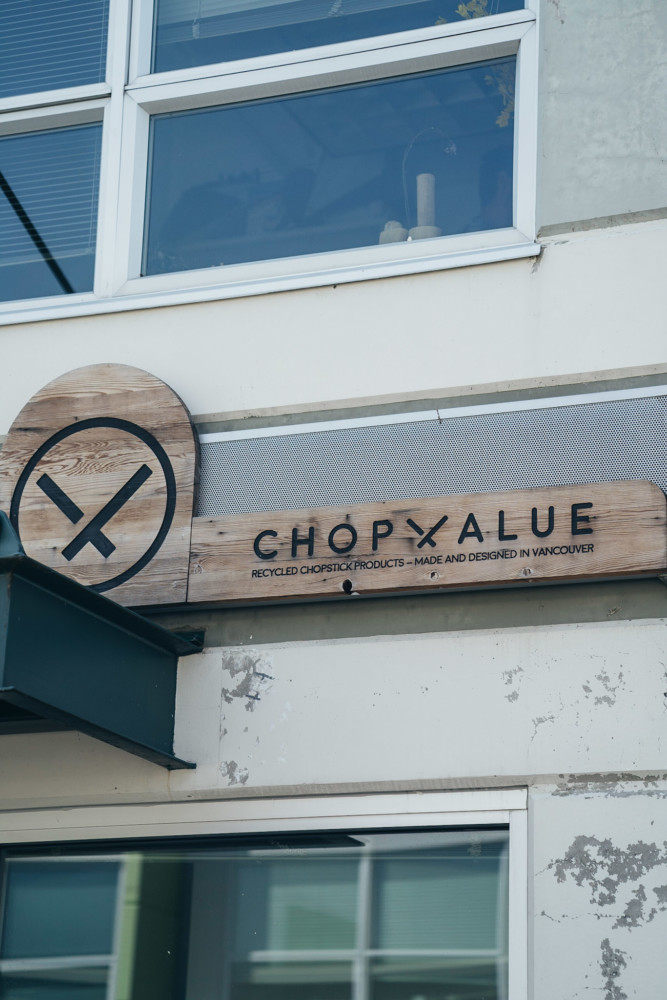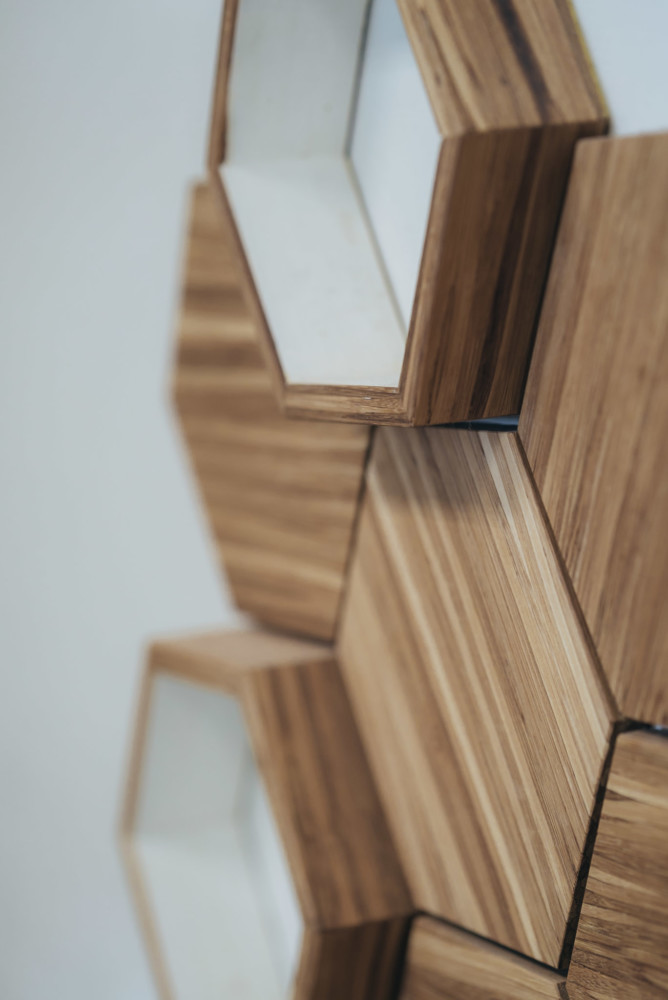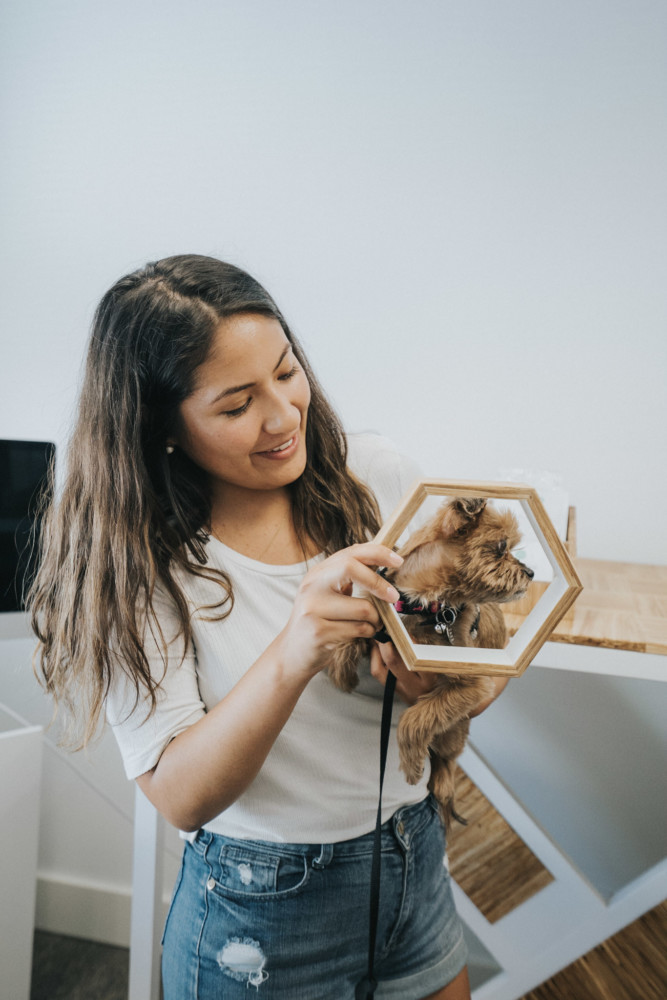Welcome to episode nine of the Fairware Changemaker Series, where we highlight entrepreneurs and thought leaders that continuously inspire us through their passion for using business to better the world.
This week we’re featuring Felix Böck, Founder of ChopValue. In this episode, we learn more about this entrepreneur’s journey to transform under-utilized resources into new materials and their mission to actively guide Vancouverites towards greener, more sustainable actions.
What inspired you to start ChopValue?
There are many different stories coming together with ChopValue. One of these stories comes from being a student and having sushi as my favourite food. I would see chopsticks ending up in the bin every time I went out for sushi. As a wood engineer and carpenter by trade, I see these bamboo chopsticks as a valuable resource. From there, one thing led to another. I started looking into how many chopsticks were getting thrown out every day and came up with a rough estimate of 100,000 chopsticks ending up in Vancouver landfills daily. That’s when I knew we had a responsibility to start something cool.
How many chopsticks have you recycled to date?
To date we’ve recycled just over 5 million chopsticks, which have then been transformed into new products at ChopValue.
 Tell us about your manufacturing process.
Tell us about your manufacturing process.
We call our ChopValue process a micro-factory; it’s where the supply of chopsticks comes in after getting transported by our pick-up vehicle. Once the chopsticks are dropped off at our facility, they all get aligned in one direction, resinated with a water based resin, then dried in a drier. After that is complete, they get transferred into a high pressure hydraulic press. That press is what makes our new raw material which is so dense and hard that it can be compared to new bamboo composite material.
What challenges have you faced bringing this business to life?
One of the biggest challenges for us is that we grow only as fast as a person or as someone with an idea. As a business takes off, it grows faster than oneself, so we’ve had to build a good team around us that lifts us up and grows with us. It’s so important to identify the right key team members. The second thing is that we still haven’t figured out how big of an opportunity we have. At the beginning, we recycled with 25 restaurants, but on our map there are over 1,000 restaurants. We’re considering what a healthy size is for a viable business, while still maintaining a positive environmental impact.

How did restaurants receive your ask to recycle their chopsticks?
During our initial outreach, we learned that we needed to develop our brand and show restaurants how this project would benefit them. We did this by educating them on the circular economy, and how it reduces their environmental impact and garbage tipping fees. By recycling their chopsticks, restaurants can be part of something inspiring even though they’re just providing us with little chopsticks. From these initial conversations, we found restaurant owners would often have a wake-up moment!
You could have all your labels on the products, stickers on the windows and a full tab on your website just filled with certifications. We would rather spend our time and money growing our business on a sustainable level to understand what we’re doing. It’s important to analyze what you’re doing to make sure you don’t miss something along the line!
How has recycling chopsticks benefited other businesses?
I can only speak to observations that we have made through the businesses that recycle with us. We have seen that businesses are now more aware of their impact from the resources perspective. Awareness is the more moderated emotion to inspiration!

Recently you launched a furniture line at INspiration.
The furniture line of ChopValue has been designed exclusively for INspiration. Our designer and architect, Santiago Martínez, designed each and every piece showcased at INspiration during the month of May. We launched it with the name Districts to represent every district in Vancouver that is currently participating in recycling the chopsticks that become our new furniture pieces. The really cool thing is that this story will continue in the future. Every city has different neighbourhoods so we can always add them to the furniture line as we expand.
What’s next for ChopValue?
ChopValue will always focus on using chopsticks as a resource to tell an inspiring story and show that we have created a viable business with a lean approach. We are currently in the phase of expansion to other cities – not only for our recycling program, but for our micro-factories as well. With this approach, we will have the resource supplied locally and the production of the recycled product close to the client. It will make the term ‘made local’ valid everywhere we go!

What does being a changemaker mean to you?
I’ve never seen myself as a change maker personally, but I think with a growing team we can spark inspiration in every single team member. I just want to do things rather than talk about them. If that is the only message I can send, that’s totally fine by me.
Felix Böck is giving chopsticks a second life by turning them into high-performing design products. The result is a new raw material with caramelized brown, thin-stranded texture that can be found in coasters, exercise blocks, shelves, tables and much more. At ChopValue, they are working towards making a lasting impact by creating something unique and beautiful with a story worth sharing.
We have more to come, so stay tuned for our next episode by signing up for our newsletter for all the latest on sustainable products and ethical sourcing trends.

 Tell us about your manufacturing process.
Tell us about your manufacturing process.

















